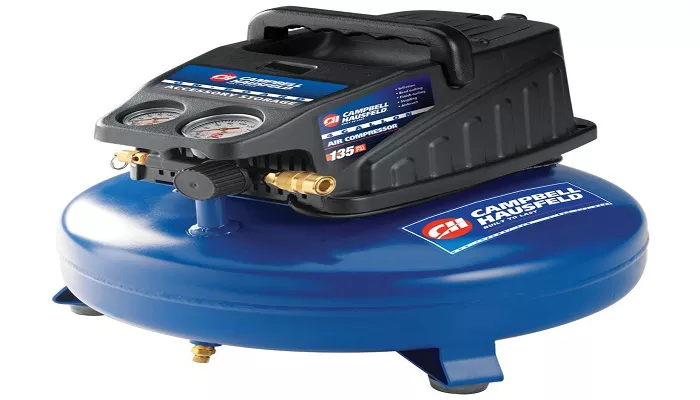Campbell Hausfeld is a trusted brand in the air compressor industry, known for producing reliable and efficient models for both DIY enthusiasts and professionals. Whether you’re inflating tires, powering pneumatic tools, or running industrial equipment, understanding how to properly use and maintain your Campbell Hausfeld air compressor is essential for safety, performance, and longevity.
Understanding Your Campbell Hausfeld Air Compressor
Key Components
Motor/Pump: Generates compressed air.
Tank: Stores pressurized air (measured in gallons).
Pressure Gauge: Displays tank pressure (PSI).
Regulator: Adjusts output pressure for tools.
Safety Valve: Releases excess pressure to prevent tank rupture.
Drain Valve: Removes moisture buildup.
Air Outlet: Connects to hoses and tools.
Types of Campbell Hausfeld Compressors
Pancake Compressors: Portable, ideal for small jobs.
Hot Dog Compressors: Lightweight, good for inflating and light tool use.
Twin-Stack & Wheelbarrow Compressors: Higher capacity for contractors.
Stationary Compressors: Industrial-grade for heavy-duty use.
Check your model’s manual for specific details on horsepower (HP), tank size, and maximum PSI.
Setting Up Your Air Compressor
Proper setup ensures safe and efficient operation.
Choose the Right Location
- Place the compressor on a flat, stable surface.
- Ensure adequate ventilation to prevent overheating.
- Keep away from flammable materials.
Check Oil Levels (If Applicable)
- Locate the oil fill cap.
- Remove it and check the dipstick.
- Add compressor-grade oil if needed.
Connect Power
- Plug into a grounded outlet matching voltage requirements (120V or 240V).
- Avoid using extension cords unless necessary (use a heavy-duty cord if required).
Attach Air Hose & Accessories
- Connect an air hose to the outlet using a quick-connect fitting.
- Install an in-line filter if working with sensitive tools (e.g., paint sprayers).
- Attach the desired pneumatic tool.
Operating Your Air Compressor
Follow these steps to ensure safe and effective use.
Power On the Compressor
- Turn the power switch to “ON.”
- The motor will start, filling the tank with compressed air.
Monitor Pressure Build-Up
- Watch the pressure gauge until it reaches the cut-out pressure (maximum PSI).
- The compressor will shut off automatically when full.
Adjust the Regulator
- Set the output pressure to match your tool’s requirements (check tool manual).
- Turn the regulator knob clockwise to increase pressure, counterclockwise to decrease.
Use Your Pneumatic Tool
- Squeeze the tool trigger to release air.
- The compressor will cycle on/off to maintain pressure.
Shut Down Properly
- Turn off the tool.
- Set the regulator to zero.
- Turn the power switch to “OFF.”
- Unplug the compressor.
- Drain the tank (see maintenance section).
Troubleshooting Common Issues
| Problem | Possible Cause | Solution |
|---|---|---|
| Compressor won’t start | No power, tripped breaker, faulty switch | Check outlet, reset breaker, test switch |
| Low pressure output | Leaks, clogged filter, faulty regulator | Tighten connections, clean filter, adjust regulator |
| Excessive noise | Loose parts, motor issues | Tighten bolts, check motor bearings |
| Overheating | Poor ventilation, dirty cooling fins | Move to a cooler area, clean fins |
Conclusion
A Campbell Hausfeld air compressor is a powerful and versatile tool when used correctly. By following proper setup, operation, and maintenance procedures, you can ensure reliable performance for years. Always refer to your model’s manual for specific guidelines and prioritize safety in every use.Whether you’re a hobbyist or a professional, mastering your air compressor will enhance efficiency and productivity in any project.

